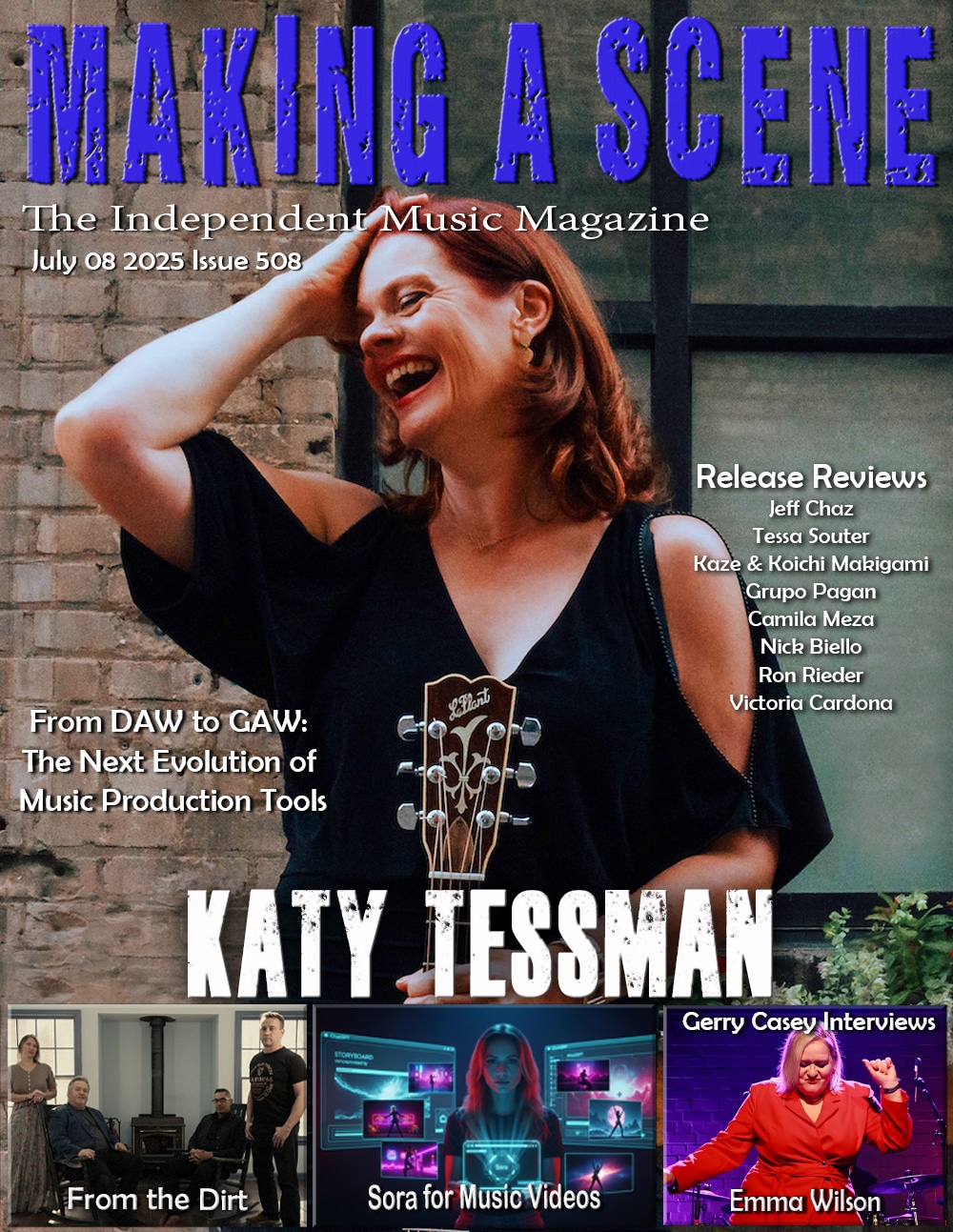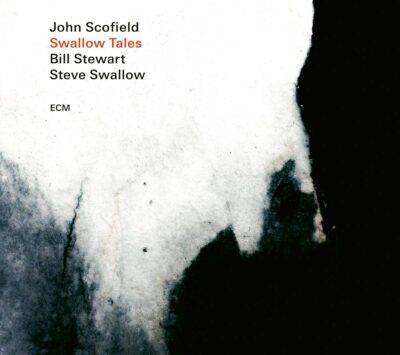John Scofield Swallow Tales
John Scofield
Swallow Tales
ECM
Master bassist Steve Swallow will turn 80 this coming October and remains highly vital whether as a member of his wife, Carla Bley’s Trio, or as a sideman. Many acknowledge Swallow as one of jazz’s best bassists, but this recording shines a light on his compositional skills as well. More than 40 years of preparation have led to this recording, the renowned guitarist John Scofield’s first for ECM as a leader, though he has appeared on many as a sideman. Scofield first met Swallow as a twenty-year-old when attending Berklee and the two have collaborated often since. (more on that later) Yet, this represents an opportunity for the two giants to gather along with drummer Bill Stewart to render an album stocked with many of Swallow’s best compositions (which Scofield terms “songs” because almost all could be sung). Yes, this is an album about both melody and improvisation, Scofield indicating “Sometimes when we play it’s like one big guitar, the bass part and my part together.”
Scofield considers this an “old school” approach, perhaps meaning that he stays away from the pedals and effects that among his well-rounded guitar skills, have made him some an important force on the instrument. There are plenty of changes and shifting cadences, but it’s stays straight-ahead and very accessible. The album was recorded in one afternoon in March 2019 in New York. Stewart, for his part, is a frequent collaborator of Scofield’s since the ‘90s first playing with Scofield’s quartet that included Joe Lovano. Both Swallow and Stewart played on Scofield’s lauded Country for Old Men. When Scofield launched his own recording career, Swallow was in his trio (with Adam Nussbaum on drums). The guitarist and the bassist fine-tuned their musical understanding over many tours and have continued their relationship in many other configurations over the years. Scofield appeared on Steve’s XtraWatt album Swallow in 1991, for instance, and Swallow is on numerous Scofield recordings.
They open with “She Was Young,” a tune introduced on Steve Swallow’s ECM album Home in 1979, where it was indeed sung, by Sheila Jordan. Several of these Swallow tunes including “Falling Grace,” “Portsmouth Figurations,” and “Eiderdown” – belonged to the 1960s repertoire of Gary Burton’s groups. Scofield, who had admired them from the outset, studied them with Burton and the composer in the early 1970s, by which point Swallow had made the transition from double bass to bass guitar, creating a new voice for himself on the electric instrument. In those units with Burton, Swallow accompanied guitarist Larry Coryell. “Falling Grace,” which has appeared on many albums, first appeared on Burton’s 1966 The Time Machine with Coryell and “Portsmouth Figurations” was on the classic 1967 Duster, also with Coryell. Some this writer cannot pin down but since Scofield was good enough to provide background on many of the tunes, reference points seem to be a good addition, although it’s be no means definitive. “Awful Coffee” can be found on the 2008 Carla Bley’s Big Band. “Hullo Bolinas” is on Gary Burton Quarter Live 2009 while “Radio” appears on Swallow’s 1978 Times Square. Both “Eiderdown and “Falling Grace” appear on Burton’s album with Stephane Grappelli, 1972’s Paris Encounter. “Falling Grace” also was on the famous 1972 Chick Corea-Gary Burton ECM duet Crystal Silence.
According to Scofield’s notes “Awful Coffee” was originally an up tempo tune that he slowed down for this recording (with Swallow’s approval of course) while the group, including drummer Stewart get chances to stretch out on “Eiderdown,” which has one of Scofield’s most cooking solos. “Hullo Bolinas” is a flowing, pretty waltz and “Away” is a ballad with the written intro unusually played just once. These two follow the swinging “Eiderdown” and attest to the fine finesse of the three musicians. “In F” has Swallow borrowing the harmony from Cole Porter and writing a head that includes drum breaks, another showcase for Stewart as he and Scofield exchange in call and response. Scofield considers the closer “Radio” the most difficult to solo on but offers no excuses since the tune is more than 40 years old. This, like “Falling Grace” has what Scofield refers to as “broken time” bass playing, yet another opportunity for Stewart to join his rhythm partner in the fun while Scofield carries the melody.
As Scofield says, “These two giants bring out the best in me.” His string bending, note selection and tone are as good, if not better, than anything he’s put on record. As talented as he is, he owes that both to the players and the melodic character of Swallow’s tunes.
By Jim Hynes
Discover more from Making A Scene!
Subscribe to get the latest posts sent to your email.











